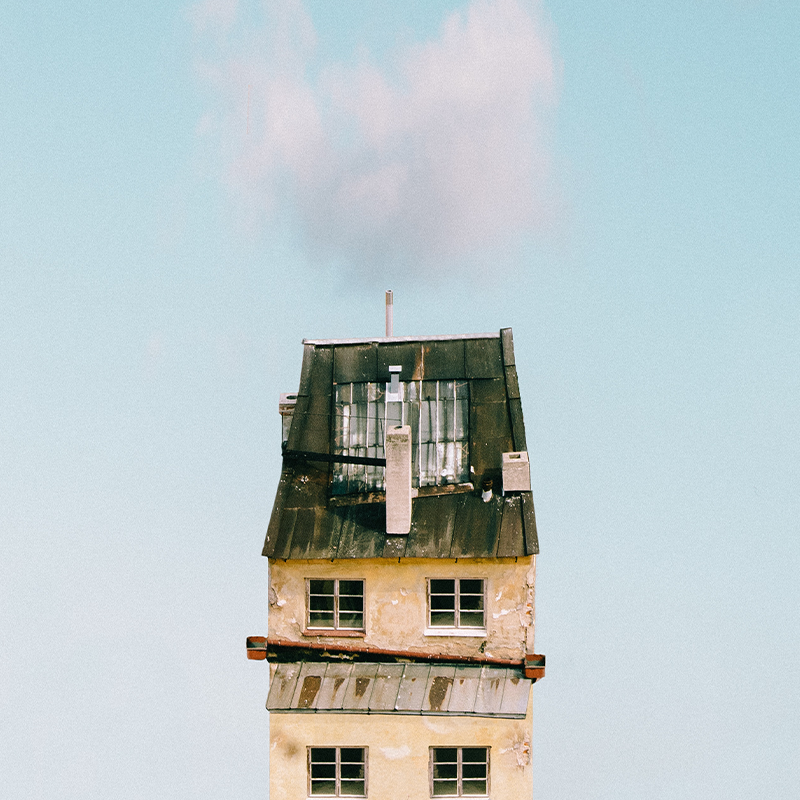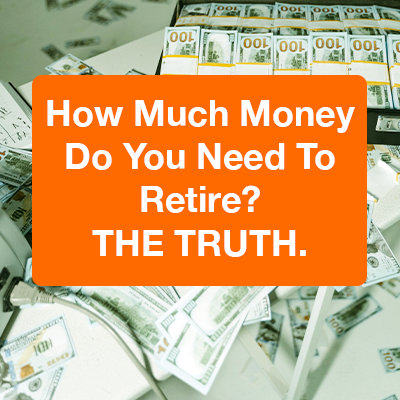In this post, I’ll try to convince you that single family rental homes are a terrible idea. Even if BiggerPockets love them.
The problem with podcasts and books is survivorship bias: you mostly only hear very successful stories. As a result, you’ll get a disproportionate underrepresentation of risk involved in single family home rentals.
If a podcast interviews 50 people on single family rental homes, and they all do that strategy and get good results, does it mean it’s a good strategy? The answer is: maybe. If they were able to find 50 people are successful out ot 5000, that’s a bad strategy.
Never mistake a skewed sample of good luck and confuse that with actual good strategy. A good strategy has good mathematical fundamentals with tolerable risks. A bad strategy might seem to have good math, but the second-order risks is much higher than one could possibly reasonably underwrite.
In the discussion below, please keep in mind I’m talking about single family rentals for purposes of cash flow, and not A-class penthouses or apartments that you happen to rent out to cover mortgage in hopes of appreciation. Doing A-class vs. single family rentals for cash flow are 2 very different things, and I’ll only cover “cash-flowing” single family rentals here.
Risk: Main Reason Why Single Family Rental Homes Are Bad
If you’re young and poor like me, single family rentals for cash flow is an absurdly terrible idea.
Here’s an example: I bought a single family rental for $119K. Sold it for $209K.
Great deal, right?
Guess how much I earned on it?
If you guessed $20K pre-tax, you’d be right. I held it for 4 years and there was a ton of headaches.
The reason why the amount was so low was because the renovations to get it ready for sale, buyers demanding that trees be cut from the property, and delay of sale cost a total of $60K. As such, my cap gains were $40K.
But over the course of 4 years, even though on paper I should be making $300/mo, I actually lost $20K over 4 years. This is because of unforeseen consequences like a gas leak that took a month to fix. The city shut down the house and I had to cover rent + very expensive repairs for the gas leak. The vacancy was also much higher than the underwritten 5% (it was more like 15% since a tenant was delinquent in rent every month and they were evicted).
You might think: “Why didn’t you anticipate the gas leak by doing inspections?” I did. When I bought, I sent 2 separate inspections to make sure nothing was wrong. Nobody – the inspectors, realtors, property managers, were able to catch the gas leak.
You might think: “Why did you get a tenant that doesn’t pay you?” They did pay me the first year. But the 2nd year came and they were very bad at paying. They need to read my blog so they can get their money together!
Anyway, over 4 years I lost $20K operating the single family rental home, and as such my supposed $100K gain was reduced down to $20K pretax.
The fact that huge problems like gas leaks can be 100% hidden and impossible to vet means that huge risks can happen and are impossible to vet.
If you have a net worth of only, say, $200K and you did a $40K down payment and need to front $60K in repairs and vacancies, the volatility in your net worth is huge! And it’s only across 1 property! And there’s no guarantee that you won’t absorb enormous net worth volatility by buying real estate!
For this reason, I think the risk in real estate is enormous. Sure, you can make tons, but you can also lose tons of money. I prefer other methods where you can make tons of money, but your losses are severely limited.
Conversely, if you’re old and rich and can absorb +/-$100K volatility in your net worth without breaking a sweat, I think single family rental homes could be a great way to go. But the question is: why would you, even? If you’re that rich, it seems like a waste of time to buy these “cash flowing” properties so you can collect a few hundred a month per property.
A lot of podcasts and blogs and gurus never talk about risk. But risk is the biggest thing there is.
I did everything the podcasts told me to do, twice over, and still barely made a $20K profit over 4 years.
You might think: “$40K down payment for a $20K gain…50% sounds great to me!” But you have to realize that the risk involved for a 50% gain was massive. I could have easily have only broken even if the buyer of my property required me to chop down more trees. And I could have easily have made only $15K if I wasn’t extremely lucky that the water heater was an electric water heater already (after the gas leak, we had to make all the appliances electric, including the furnace. I got lucky that I didn’t also have to change the water heater as it was already electric).
So I only made $20K because I was lucky, not because I was a genius in underwriting. I asked a bunch of property managers to give me numbers so I can estimate vacancy. I came up with 3%, so I underwrote 5% vacancy. I also added a lot of safety margin in my capex, operating costs, and vacancy.
None of this matters, because as luck can just say “screw it” to your conservative underwriting and perform way worse.
And if you require luck to do a good investment, it’s not a good investment at all.
Myth Of Preservation Of Capital
People say single family rentals (SFRs) are a good way to preserve capital. It could never be worth 0. It might take a while to stabilize at the beginning, but once your property is humming along, all is good over the next 30 years of the mortgage. This is probably true. But if you’re buying SFRs for capital preservation it seems like there’s less scary alternatives to do that.
For me personally, I don’t believe in this myth because cash flowing property usually means B- or C-class properties. You can’t “preserve” your capital if you’re always exposed to the risk of having to spend a significant percent of your asset’s worth doing capex or repairs.
As far as why I bought single family rental homes to begin with: I wanted reliable, “passive income” cash flow.
The Dangerous Myth Of Cash Flow In Single Family Rental Homes
Suppose you land a great C-class property with a 10% cash-on-cash. In 10 years, you’d get your capital back (great!). You keep collecting rental income and in 20 years, you double your money. Doubly great!
Except with a 10% annualized return on the SP500, you could have made +572% on your money instead.
And a 10% cash-on-cash is extremely optimistic because these generally mean very shoddy neighborhoods. Shoddy neighborhoods = bad tenants = your property will be treated poorly = tons of repairs and capex. So technically you’d make 10% cash-on-cash, but your profits each year is likely to be much less than 10%.
So sure, you can enjoy your cash flow. But it’ll be a headache, and it certainly won’t be passive. And all that work that you did to earn that sub-10% cash flow? Just tossing it to the SP500 and doing nothing is much more likely to outperform it. By a large margin.
Suppose now you’re more sane and you do a 3-5% cash-on-cash on a SFR that’s in an “A-“ or “B+” class category. Now you have less headaches, but still some headaches (by the way, the property I sold above for $209K was an “A-“ property so headache is also by the luck of the draw). Except now you’re doing much worse than SP500.
I think these SFRs might be more compatible for older folks with a very high net worth, but very incompatible with someone that’s in their 20s to 40s, with a lower net worth. The reason is because if you’re young: you have a lot of time on your side to compound money in the market. And the market is known to outperform the vast majority of real estate.
If you absolutely must have cash-flowing properties in your portfolio, instead of single family rental homes, let me suggest 2 alternate solutions:
- Invest in real estate syndications instead. Syndications are more professionally managed, have economies of scale, maximize your likelihood of actually cash flowing, and *gasp* — maybe you’ll even see some appreciation! You’ll likely get a higher return, and it’s a lot more passive!
- Do high-dividend stocks. As of writing this, $LUMN does 7% dividend yield per year. After taxes, they might do less/breakeven than your 5% cash-on-cash property, sure. But the tradeoff is headaches. One is 100% passive with no headaches, the other is having to juggle dealing with management, delinquent rent possibly, and random capex that could get stressful.
Ask yourself this: Do you want to invest in $LUMN with a 7% dividend as of this writing, or do I want to invest in a 7% cash-on-cash single family rental home where you have a mortgage to take care of and headaches with collecting rent, management, etc? One’s almost completely passive (making the company / syndication is paying their dividends each quarter) and the other one can be a monthly nightmare like my investments were.
Time And Money Opportunity Cost
When I did my $40K down payment on my single family rental home…I had a choice between investing in a company I worked at vs. buying this home.
But I listened to a coworker saying that I should “diversify” my income and buy an SFR instead.
Worst decision of my life.
I made +50% over 4 years with this property. But if I had bought and held my previous employer’s stock, I would have made $2.2 million.
This house may have “made me” $20K. But the opportunity cost was $2.2 million. That’s an expensive house!
Not only is there a huge financial opportunity cost, there’s a huge time cost. Sleepless nights worrying about the gas leaks, delinquent payments, whether or not the buyer will actually close the contract, etc. takes a huge toll on your everyday productivity.
Don’t let the myth of “the harder I work, the more money I’ll make” get you here. In an investing perspective, the general rule of thumb is “the less work I need to do, the more money I’ll make.” You can do absolutely nothing with SP500 and you’ll easily outperform what I did with this property. And you could have done it with 0 worries.
You’re Not Liquid With Single Family Rental Homes
Not only is the risk huge in buying a single family rental home.
Not only is cash flow surrounding an SFR a myth.
Not only is there an enormous opportunity cost with SFRs.
You’re illiquid.
If you ever want to pull money out in an unplanned emergency, you can’t! In the stock market, you can just liquidate at a gain (or loss) if you need the money.
Clearing in the stock market takes 3 days. Selling and closing a house could take a month (or in my nightmare story, 4 months).
“Why not just plan ahead for emergencies?” I do. But the definition of an unplanned emergency is that you had no way of anticipating it happening. Maybe you saved up $50K in cash and you thought it was enough. The emergency requires $100K. What then?
So then you save up $100K instead of $50K. But maybe your emergency requires $200K. What then?
How can you possibly know how much to save? You can be reasonable about it, but you can’t 100% guarantee that you’ll be right. So why invest in something illiquid, with lower returns, when you can invest in alternatives that are more liquid, with higher returns?
Myth Of Taxes
It’s true you get a smorgasbord of tax benefits investing in real estate. But a lot of them come with strings attached. For example:
- 1099 exchange – you have only a short window to pick the deal you’d like to “trade up” to. You heavily constrain what deals you can do to take advantage of this tax loophole. And when you’re under a severe time limit, you’re skewed to make a bad investment deal just to take advantage of not paying taxes. Picking a worse deal to save on taxes is a bad strategy.
- Opportunity zones – not paying taxes is great. But these require long holding periods which can translate to massive opportunity costs. On top of it, opportunity zones are far and few in opportunities. This runs into same problem as 1099s. Your deal flow is constricted so your likelihood of picking the best deal is also limited.
- Depreciation – This is great since you can offset your rental gains in your single family rental homes. Problem is when you make real money (i.e. on the sale), you need to pay back the depreciation that you took all the years prior. Money now is more valuable than money later, but still depreciation isn’t “free.”
I think for folks with lower net worth (less than $5 million), SFRs have a bad risk profile and is financially a very bad product.
As a general rule: you should not buy bad financial products because you can earn a few more percentage on taxes, since the fundamental issues of risk, opportunity cost, illiquidity, and imaginary cash flow is still there.
Doing a bad investment to save on taxes is equivalent to taking an Uber across town so you can buy a coffee that’s $0.75 cheaper.
Summary
They say “don’t knock it til you try it.” Well, I’ve tried it. Twice. And I’m knocking it.
One of my favorite books is Annie Duke’s Thinking In Bets. One of the biggest takeaways is we shouldn’t do “resulting” – the process of changing our strategy based on a few results.
It might be the case that people on podcasts do well with single family rental homes, but they’re heavily influenced by survivorship bias. They could have all just caught a great 2012-2018 market. They could have all just have gotten lucky and happened to make it despite it being a bad strategy. In fact, all the “successful” people in podcasts could be over-leveraged and just waiting for a bad economy to completely wipe them out. There’s no way for you to know. Just because you hear success stories doesn’t mean it’ll work for you, and it certainly doesn’t mean that it’s a good strategy.
Go deeper and look at the fundamental risk and tradeoffs, and see if the returns are worth it for you.
High-level: If the fundamentals don’t not make sense, and if the risk is too big, you should not take the risk of doing single family rental homes.
My rule of thumb: don’t buy if you aren’t:
- Looking for cap preservation.
- Can’t easily pay in cash for the property.
- Won’t be OK if your property is worth 0. This won’t happen in reality but the math can converge to this. Example: $120K property costing $120K over a decade for capex and repairs.
Let me know your thoughts in comments below or if you have questions feel free to reach out to me at hello@goodmoneygoodlife.com.
P.S: Clicking on affiliate links and buying stuff will pay me, which will help me continue running this site. If you found this article helpful and you want to help a friend think about the risks of buying a single family rental home, I’ll love you forever if you shared this article with them.












0 Comments
Trackbacks/Pingbacks